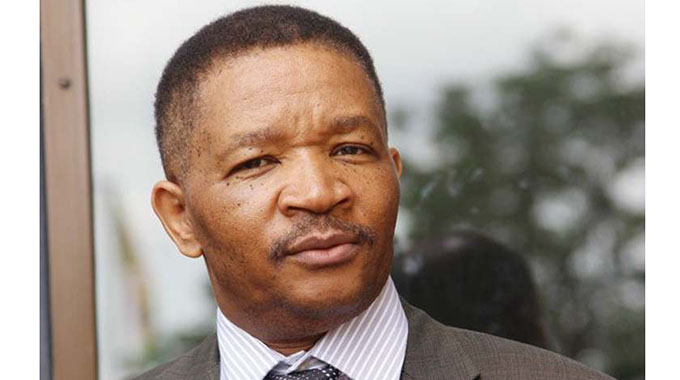Opencast mining site threatens humans, livestock

Conrad Mupesa in Mhangura
THE closure in 2000 of Mhangura Copper Mine, about 188km north-west of Harare, has spawned socio-economic challenges for the locals.
Thousands of workers lost their jobs, their dependence suddenly had no breadwinners, a formidable soccer team which once competed in the country’s premier league folded and a bustling settlement turned into a ghost town with virtually no economic activity.
These sad developments were highlighted in the national and international media as a giant had indeed fallen, with many former workers and their families packing their bags to seek new lives elsewhere.
Perhaps what was downplayed was the danger previous mining activities now pose to the community that chose to remain here, mostly for sentimental reasons and lack of alternatives.
Danger now looms for school-going children and livestock in the form of huge pits from opencast mining activities at the defunct copper producing site.
The pits are widening and deepening each year because of erosion.
On shutting down two decades ago, there was no effort by the mine owners, the Zimbabwe Mining Development Corporation, to restore the pits, maybe because there were hopes of resuscitating operations.
As schools opening impends, the colossal opencast mine site poses a real danger to humans, particularly primary and secondary school-going children who frequently use the bush strip roads passing through the unrestored site.
Environmental degradation is so glaring as edges of the strip roads are eroded yearly.
The site, which is approximately a kilometre long, has a deep crack that has a water reservoir on either end and locals say the water level does not change, suggesting the reservoir is also drawing water from the underground mine.
Teachers at Ridziwi High School, a few hundred metres away from the scary site, say they have noticed that the edges of the gorge are being eroded and chewing into the walking path.
“We can safely say the gorge is increasing in width and size every year and we are afraid of the consequences that it brings to the environment,” a teacher at the school said.
The threat was so apparent to hundreds of primary and secondary school going children and livestock, especially at night.
Another concerned parent said during the years of operation and to avoid the loss of life, the mine owners deployed security personnel to bar people from using the route.
That was no longer the case after the mine ceased operations.
“During the days when the mine was still operational, people, especially children were not allowed to use this road as it was meant for mineworkers and security was tight around the area,” said Mr Vongai Vangi.
“Today, most children from Mhangura compound would rather use this route which shortens the distance to school by almost two kilometres. Although most parents forbid their children from using this route, the majority of the students still use it.
“As if that is not enough, primary school going children from the other side of Mhangura town pass through the rift, which is also a worrying thing.”
Mr Vangi appealed to responsible authorities to look into the matter.
Although there has never been any case of fatalities, an old adage says: “A stitch in time saves nine.”
Makonde Rural District Council recently turned one of the opencast mine sites into a dump site, but the initiative is slowly dying because of the unavailability of resources.
“The council currently doesn’t have powers to bill Mhangura residents and cannot fully provide refuse collection services to the town which in turn will help restore the open cast mine site,” said council chairperson, Councillor Simbarashe Ziyambi.
Another menace in Makonde District is coming from artisanal miners.
“We intend to engage the artisanal miners in an amicable manner so that we teach them sustainable mining activities,” said Clr Ziyambi. “If not attended to, the open sites they use will become another difficult issue to handle.”
To beef up awareness, the Environmental Management Agency (EMA) is engaging artisanal miners on sustainable mining practices that discourage widening and deepening of open cast sites, as well as alluvial mining among other practices that harm the environment.
Open cast mining, which is the extraction of minerals from seams just beneath the surface of the earth, is widely used in copper and coal mining because it is fast and cheaper.
But researchers like Jez Abbot view it is as disruptive to the land, which is costly to restore when the mining stops.
“The practice can create and has created huge restoration nightmares,” opines Abbot.
Mhangura collapsed under the weight of weak copper prices on the world market, sending almost 1 000 workers packing.
A former worker at the mine, Mr Everisto Shoko, said during the retrenchment exercise, his department which dealt with refilling of open-cast and underground mine sites was the worst hit.
“We managed to refill almost 60 to 70 percent of the underground shafts, including the east shaft that is below the Makonde Christian Hospital,” he said.
“During retrenchments and downsizing exercises, our department, which was regarded as not so important, suffered heavily as a lot of people were the first to lose their jobs.”
The challenges facing Mhangura are not unique, as they have been experienced in other countries with open cast mines.
Researchers in 2014 warned the British government that open cast sites in South Wales were at risk of never being fully restored because of insufficient restoration bonds.
Initially, it is the responsibility of the company operating the mining activities to foot the bill of restoring open cast sites.
But the cost of restoring open cast sites once the mines have been closed turn to be a nightmare for communities and governments at large.
The bonds that are aimed at providing financial assurance in the form of a bank deposit are sometimes not found or said to have depreciated in value.
Mhangura locals say successive political representatives at local authority and legislative levels have failed to address the issue.
National Assembly Member for Mhangura constituency Precious Chinhamo Masango (Zanu PF) has pledged to pursue all necessary channels to ensure the pits were attended to.










Comments